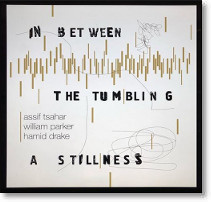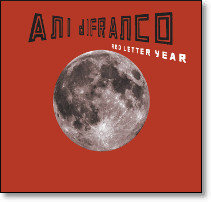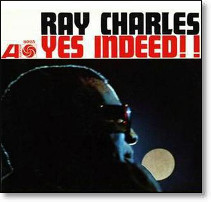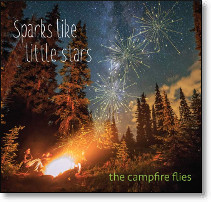Latest
2024
Dec
Nov
Oct
Sep
Aug
Jul
Jun
May
Apr
Mar
Feb
Jan
2023
Dec
Nov
Oct
Sep
Aug
Jul
Jun
May
Apr
Mar
Feb
Jan
2022
Dec
Nov
Oct
Sep
Aug
Jul
Jun
May
Apr
Mar
Feb
Jan
2021
Dec
Nov
Oct
Sep
Aug
Jul
Jun
May
Apr
Mar
Feb
Jan
2020
Dec
Nov
Oct
Sep
Aug
Jul
Jun
May
Apr
Mar
Feb
Jan
2019
Dec
Nov
Oct
Sep
Aug
Jul
Jun
May
Apr
Mar
Feb
Jan
2018
Dec
Nov
Oct
Sep
Aug
Jul
Jun
May
Apr
Mar
Feb
Jan
2017
Dec
Nov
Oct
Sep
Aug
Jul
Jun
May
Apr
Mar
Feb
Jan
2016
Dec
Nov
Oct
Sep
Aug
Jul
Jun
May
Apr
Mar
Feb
Jan
2015
Dec
Nov
Oct
Sep
Aug
Jul
Jun
May
Apr
Mar
Feb
Jan
2014
Dec
Nov
Oct
Sep
Aug
Jul
Jun
May
Apr
Mar
Feb
Jan
2013
Dec
Nov
Oct
Sep
Aug
Jul
Jun
May
Apr
Mar
Feb
Jan
2012
Dec
Nov
Oct
Sep
Aug
Jul
Jun
May
Apr
Mar
Feb
Jan
2011
Dec
Nov
Oct
Sep
Aug
Jul
Jun
May
Apr
Mar
Feb
Jan
2010
Dec
Nov
Oct
Sep
Aug
Jul
Jun
May
Apr
Mar
Feb
Jan
2009
Dec
Nov
Oct
Sep
Aug
Jul
Jun
May
Apr
Mar
Feb
Jan
2008
Dec
Nov
Oct
Sep
Aug
Jul
Jun
May
Apr
Mar
Feb
Jan
2007
Dec
Nov
Oct
Sep
Aug
Jul
Jun
May
Apr
Mar
Feb
Jan
2006
Dec
Nov
Oct
Sep
Aug
Jul
Jun
May
Apr
Mar
Feb
Jan
2005
Dec
Nov
Oct
Sep
Aug
Jul
Jun
May
Apr
Mar
Feb
Jan
2004
Dec
Nov
Oct
Sep
Aug
Jul
Jun
May
Apr
Mar
Feb
Jan
2003
Dec
Nov
Oct
Sep
Aug
Jul
Jun
May
Apr
Mar
Feb
Jan
2002
Dec
Nov
Oct
Sep
Aug
Jul
Jun
May
Apr
Mar
Feb
Jan
2001
Dec
Oct
Sep
Aug
Jul
Jun
May
Apr
Mar
Feb
Monday, May 27, 2019
Music Week
 |
 |
 |
 |
 |
 |
 |
Expanded blog post, May archive.
Music: current count 31558 [31518] rated (+40), 251 [252] unrated (-1).
Last Monday in May, so extra work today doing my paperwork for the May Streamnotes archive. Rated count was 34 when I first checked on Sunday, but I've kept this open to see what fits into the month. Still, much of the bulk, both this week and for the month, has come from diving into back catalog. With new albums from George Cables and Jerry Bergonzi out, I thought they might be fun. When time ran out, I still had more Bergonzi to go, not least the new one.
The week's finds are scattered. The latest Christgau Expert Witness picked a Youssou N'Dour album I had noticed from publicist email but hadn't tracked down (not on Napster, but I was able to stream from Rock Paper Scissors). Also Bassekou Kouyate & Ngoni Ba's Miri, a previous A- here (also according to Michael Tatum). Phil Overeem's latest list pointed me at Beyoncé's Homecoming and A Day in the Life, but the album I liked most was an exceptionally genteel trad jazz quartet he had down at 23. I got some more ideas from Alfred Soto's The best albums of 2019, first draft: specifically Nilüfer Yanya's Miss Universe -- although I'll note that I had heard his six higher-rated albums and didn't A-list any of them. (Further down his list, I did pick Control Top: Covert Contracts; Robert Forster: Inferno; Billie Eilish: When We All Fall Asleep, Where Do We Go?; and Lizzo: Cuz I Love You; still unheard: The Mountain Goats, Vampire Weekend, The National; Tyler, the Creator; and Weyes Blood.) Lucas Fagen provided the tip on L7 (also one I did't follow up on yet: Gary Clark Jr.). First L7 play didn't convince me, so I went back and played the Best Of. Gave the new one an extra play later, but didn't move it. They have one of the all-time great band sounds, but at this point I'd guess it's more likely to drop a notch than to rise one. Opposite is true of their eponymous debut, which Christgau missed and I'd never heard. They get something out of youth there that they'll never get back to again.
It occurred to me that Ray Charles and Betty Carter might be on YouTube, and indeed it was. Someone wrote me a while back to point out that several albums I couldn't find on Napster were on YouTube (usually with nothing but the static album cover for video). I haven't followed that tip often, but with big chunks of backlist from both artists this month, seemed like good due dilligence. Disappointing album.
David Cantwell has written an exceptionally thorough review of Robert Christgau's two recent essay compilations, Book Reports and Is It Still Good to Ya? (Duke University Press): Robert Christgau's big-hearted theory of pop. I managed to screw up Cantwell's name when I initially posted the link, confusing him with a mediocre pitcher from 1927-37 (W-L record 76-108, mostly with the doormat Boston Braves, although he looked better before going 4-25 in 1936). Turns out David Cantwell has been cranking out country music list-articles for Rolling Stone. It might be fun to follow up on them in June.
I am posting tonight a new installment of XgauSez, Christgau's question-and-answer session.
New records reviewed this week:
- Beyoncé: Homecoming: The Live Album (2018 [2019], Columbia, 2CD): [r]: B+(*)
- Carlos Bica/Daniel Erdmann/DJ Illvibe: I Am the Escaped One (2018 [2019], Clean Feed): [r]: B+(*)
- Brooks & Dunn: Reboot (2019, Arista Nashville): [r]: B
- George Cables: I'm All Smiles (2019, HighNote): [r]: B+(**)
- Steve Davis: Correlations (2019, Smoke Sessions): [r]: B+(*)
- Elder Ones: From Untruth (2019, Northern Spy): [r]: B
- Luke Gillespie: Moving Mists (2018 [2019], Patois): [cd]: B+(*)
- Carly Rae Jepsen: Dedicated (2019, 604/School Boy/Interscope): [r]: B+(***)
- Norah Jones: Begin Again (2019, Blue Note, EP): [r]: B
- Kehlani: While We Wait (2019, Atlantic/TSNMI): [r]: B+(**)
- L7: Scatter the Rats (2019, Blackheart): [r]: B+(***)
- Doug MacDonald: Califournia Quartet (2018 [2019], Dmacmusic): [cd]: B+(*)
- Matt Mitchell: Phalanx Ambassadors (2018 [2019], Pi): [cd]: B+(**)
- Youssou N'Dour: History (2019, Naďve/Believe): [os]: A-
- Phicus + Martin Küchen: Sumpflegende (2017 [2019], Fundacja Sluchaj): [bc]: B+(*)
- Matthias Spillmann Trio: Live at the Bird's Eye Jazz Club (2017 [2019], Clean Feed): [r]: B+(**)
- Spring Roll: Episodes (2017-18 [2019], Clean Feed): [r]: B
- Ben Stapp/Joe Morris: Mind Creature Sound Dasein (2017 [2019], Fundacja Sluchaj): [bc]: B+(*)
- Oli Steidle & the Killing Popes: Ego Pills (2017 [2019], Shhpuma): [r]: B-
- Norbert Susemihl/Chloe Feoranzo/Harry Mayronne/Barnaby Gold: The New Orleans Dance Hall Quartet: Tricentennial Hall Dance 17, October (2018 [2019], Sumi): [r]: A-
- Tanya Tagaq: Toothsayer (2019, Six Shooter, EP): [r]: B+(**)
- The Dave Wilson Quartet: One Night at Chris' (2018 [2019], self-released): [cd]: B+(***)
- Nilüfer Yanya: Miss Universe (2019, ATO): [r]: A-
Recent reissues, compilations, and vault discoveries:
- A Day in the Life: Impressions of Pepper (2018, Impulse!): [r]: B+(*)
- L7: Pretend We're Dead: Best of L7 (1992-97 [2019], Warner Music Group): [r]: A
Old music:
- Jerry Bergonzi: Intersecting Lines (2012 [2014], Savant): [r]: A-
- Jerry Bergonzi: Dog Star (2017, Savant): [r]: B+(***)
- George Cables: Cables Vision (1979 [1992], Contemporary/OJC): [r]: B
- George Cables Trio: Beyond Forever (1991 [1992], SteepleChase): [r]: B+(**)
- George Cables: Quiet Fire (1994 [1995], SteepleChase): [r]: B+(***)
- George Cables: Person to Person (1995, SteepleChase): [r]: B+(***)
- George Cables Trio: Skylark (1995 [1996], SteepleChase): [r]: B+(***)
- George Cables Trio: Dark Side, Light Side (1996 [1997], SteepleChase): [r]: B+(***)
- George Cables Trio: Bluesology (1998, SteepleChase): [r]: B+(***)
- George Cables: One for My Baby (2000, SteepleChase): [r]: B+(**)
- Ray Charles/Betty Carter: Ray Charles and Betty Carter (1961, ABC): [yt]: B
- Carly Rae Jepsen: Tug of War (2008, Maple Music/Fontana North): [r]: B+(***)
- L7: L7 (1988, Epitaph): [r]: B+(***)
- Art Pepper/George Cables: Tęte-Ă-Tęte (1982 [1983], Galaxy): [r]: A-
- Art Pepper/George Cables: Goin' Home (1982, Galaxy): [r]: B+(***)
Grade (or other) changes:
- Assif Tsahar/William Parker/Hamid Drake: In Between the Tumbling a Stillness (2015 [2018], Hopscotch): [cd]: [was: A-] A
Unpacking: Found in the mail last week:
- Avishai Cohen: Arvoles (Razdaz/Sunnyside): June 14
- Red Kite: Red Kite (RareNoise): advance, June 28
- The Jamie Saft Quartet: Hidden Corners (RareNoise): advance, June 28
Sunday, May 26, 2019
Weekend Roundup
Here in Wichita it's rained every day for a week with more coming tonight, tomorrow, the day after. We're up to 11.96 inches this month (2nd wettest May ever; annual average is 34 inches). Many rivers in southeastern Kansas have flooded -- my recent trip to Oklahoma was detoured when the Kansas State Turnpike went under water. Wichita used to flood regularly, and my home would surely be under water but for "the big ditch" -- a flood control project built in 1950-59. (See Beccy Tanner: 'Big Ditch Mitch' saved Wichita many times; also, David Guilliams: The Big Ditch: The Wichita-Valley Center Flood Control Project [PDF].) I've been reading up on this, not least because I haven't seen the rivers this high since 1966, when the Ditch spared Wichita (barely) an epochal flood that wiped out the Arkansas River dam in Lamar, CO, and flooded every other town on the river's path into Oklahoma and Arkansas. Reading Guilliams' history reminds me that we had politicians in the 1940s who were as short-sighted as the ones we have today, but I'll always be thankful they got outvoted. That Ditch was the best investment Wichita ever made. Without it I wouldn't be able to get around to this week's other stories.
Some scattered links this week:
Nancy Altman: Donald Trump's sneak attack on social security.
Phyllis Bennis: Foreign aid that costs an arm and a leg -- literally: "The US-funded Israeli military is shooting so many unarmed Palestinians that the UN is warning of an amputation crisis in Gaza."
Alexia Fernández Campbell: How Trump's new immigration plan could hurt the economy.
John Cassidy:
Jonathan Chait:
Dave DeCamp:
US Army unpleasantly surprised after asking veterans about impact of serving. E.g.:
Michael J Neel replied, "26 brothers dead. Only 8 in theater. Psyche ward myself after 3 attempts. Everything we accomplished in Mosul was wasted. Every life we gave was spat on. That's how serving impacted me." Veteran Drew Turner said, "Let's see. Lost the functional use of a hand, developed a rare movement disorder and cancer both likely from burn pit exposure, enjoy sleeping 3 to 4 hours most nights due to nightmares and during the day random anxiety attacks all due to PTSD, 7 herniated discs, arthritis . . ."
Former Army Chaplain Bill Cork replied, "Given me memories of twelve soldiers who chose suicide, three killed in preventable rollovers, another dozen sexually assaulted, and lots of people and families broken by immoral acts in a war that won't end."
Gaby Del Valle: The Harriet Tubman $20 bill was supposed to be unveiled in 2020. Now it might be delayed by almost a decade.
Tom Engelhardt: Russia's election meddling is despicable, but don't forget our own.
Dexter Filkins: John Bolton on the Warpath: One of America's more gullible war reporters, which lets him take Bolton more seriously than I would, offering a useful, respectful profile which nonetheless makes him even more disgusting than you imagined. Of particular interest are the details of how Bolton has made millions of dollars recently trying to stir up multiple wars.
Lisa Friedman: EPA plans to get thousands of pollution deaths off the books by changing its math.
David Frum: Trump's cover-up accelerates: "President Trump can only escalate. He cannot help it."
Tara Golshan:
What Rep. Justin Amash's call for Trump's impeachment showed about the Republican Party. Related: Elaina Plott: How Trump broke the Freedom Caucus.
Congress's high-stakes budget fight to avert an economic crisis, explained: about budget caps and the debt limit, again.
Ryan Goodman: Trump's position on the Mueller Report is legally ridiculous -- and dangerous.
David A Graham:
A single scandal sums up all of Trump's failures: "The president has been intervening in the process of producing a border wall, on behalf of a favored firm."
Trump's impeachment finger trap: "With each stonewall and demand that Democrats drop investigations, the president is making it more likely that Congress will feel compelled to act."
Maggie Haberman/Annie Karni: A would-be Trump aide's demands: a jet on call, a future cabinet post and more: Give him lots of perks and Kris Kobach would be willing to serve Trump as "immigration czar" (for a while).
Umair Irfan: One of the largest environmental protests ever is underway. It's led by children. Most famously, Greta Thunberg, but she's not alone. I've seen sub-teens on Jimmy Kimmel explain the science better than most Democratic politicians, let alone Republicans (who don't try to explain anything). In an effort to reassert his relevance, Bill McKibben responded: It's not entirely up to the school students to save the world.
Kalpana Jain: Indian PM Narendra Modi and his party just swept India's elections. Some more pieces on India's election:
Quinta Jurecic: Impeachment is a refusal to accept the unacceptable.
Ed Kilgore:
Does Trump want to be impeached? That very thought has occurred to me. Bill Clinton actually got a bump in the polls out of being impeached. I don't recall anything similar with John Tyler, Andrew Johnson, or Richard Nixon, which is the company Trump will be joining. He may even think that in the Us-vs-Them world he imagines himself thriving in, that not getting impeached could be taken as not trying hard enough. Equally important, in taunting the Democratic House leadership, he may hope to show them up as weak and ineffective to their voter base. He's been campaigning hard since inauguration day. It seems to be the only thing he really cares about, so why not bet the farm? Maybe he even thinks there's a further endgame after the election. After all, I've also been wondering whether Erdogan wanted the failed coup that allowed him to purge his enemies in the military and the courts and consolidate his grip on power. It would be harder to pull that off in the US, but Trump's already broken numerous so-called "norms" as he's mocked and degraded our past notions of democracy.
Trump continues drive to protect religious-based discrimination.
Jen Kirby:
Trump is sending 1,500 troops to the Middle East as the standoff with Iran continues.
Breit has finally brought down Theresa May. Well, not so fast: she will step aside as Conservative Party leader on June 7, but will stay as prime minister "until her successor is selected . . . without the need for a general election."
WikiLeaks founder Julian Assange indicted on 17 counts of violating the Espionage Act. Related: Masha Gessen: Charging Julian Assange under the Espionage Act is an attack on the first amendment; also Fred Kaplan: The charges against Julian Assange are appalling (even if you despise him); also this Pittsburgh Post-Gazette editorial: Amend the Espionage Act: Public interest defenses must be allowed.
Eric Kleefeld: Lindsey Graham proposes invading Venezuela to oust Maduro. He's citing Reagan's 1983 invasion of Grenada as a precedent, now (as then) citing Cuban influence as a cassus belli. On the other hand, whereas Grenada "had a population of less than 100,000 . . . Venezuela, on the other hand, has a population of a little over 28 million people, is lager than Texas, and has roughly 160,000 troops in its military." Graham also wants to send more troops to the Middle East, where he's up in arms against Iran. Warmongers like Graham and Bolton readily group Iran and Venezuela without ever mentioning the one thing they obviously have in common: before US sanctions crippled them, both were major oil exporters. The effect of taking their oil off the world market is to push prices (and oil company profits) up, or at least to keep those profits from falling as global demand shifts to renewables.
Paul Krugman:
After Draghi (wonkish): On the economic situation in the Eurozone since 2008, or more positively since Mario Draghi became president of the European Central Bank.
Claire Lampen: Trump v Pelosi: anatomy of a feud.
Jill Lepore: Confessions of a presidential candidate: "How the political memoir evolved."
Eric Levitz: Moderate Democrats' delusions of 'prudence' will kill us all. This is in response to an op-ed by "moderate Democrat" Greg Weiner: It's not always the end of the world ("political prudence isn't in vogue, but it should be"). I can see both sides of this debate, but that's mostly because both are illuminated by the raging wildfires deliberately set by the Republican far-right. Right now, I think the balance of evidence favors Levitz, on two counts: the sheer amount of destruction caused by Republicans in power, and the lack of positive results from recent efforts by prudent Democrats (e.g., Obama).
Dylan Matthews: The Fed's bad predictions are hurting us.
Ella Nilsen:
Democrats in Congress are getting things done. Trump and Republicans are just ignoring them.
Trump wants everyone to know he is extremely calm and Pelosi is the "crazy" one: "Trump called himself a 'very stable genius,' after Pelosi suggested his family or staff should have an 'intervention'."
Anna North:
Missouri governor signs 8-week abortion ban: "The law, which is likely to be challenged in court, contains no exceptions for rape or incest."
Alabama's abortion ban is being challenged in court by the ACLU and Planned Parenthood.
Robert O'Harrow Jr/Shawn Boburg: A conservative activist's behind-the-scenes campaign to remake the nation's courts: "Leonard Leo helped conservative nonprofits raise $250 million from mostly undisclosed donors in recent years to promote conservative judges and causes."
Nicole Perlroth/Scott Shane: In Baltimore and beyond, a stolen NSA tool wreaks havoc. With David E Sanger, the authors also reported: How Chinese spies got the NSA's hacking tools, and used them for attacks; also: Security breach and spilled secrets have shaken the NSA to its core: gives them more credit for conscience than they deserve. America's cyberwarriors aren't the first to fail to appreciate what happens when other "warriors" learn to do what they do.
Katha Pollitt: How the right to legal abortion changed the arc of all women's lives.
John Quiggin: Australia isn't doing its part for the global climate. Sooner or later we'll have to pay our share. Last week's elections kicked this can further down the road. Quiggin has a new book out, Economics in Two Lessons, explaining where markets work, and where they don't.
Robert Reich: Trump's wrecking ball assaults American government. Luckily, it is strongly built. I think a big part of Reagan's popularity came from the fact that he couldn't do much short-term damage, even though that was plainly the intent of his program. Democrats controlled Congress most of the time, and liberals dominated the courts. Reagan indulged many people's prejudices, saying things that flattered his base and riled them up against supposed enemies, yet the real consequences of his presidency -- the destruction of the labor movement, the major shift toward ever-greater inequality, undermining civil rights while ramping up mass incarceration, the embrace of militarism and the withdrawal from international cooperation, the end of equal time and the takeover of politics by big money -- only gradually became evident (not that they explicit about their goals, but because most people didn't take the threat seriously). Of course, it became harder to overlook the cumulative effect of Reagan and later waves of conservative activism under the Bushes and Trump. Reich is probably right that the US political system still moderates the extremism of Republican presidents -- although it's been much more effective at neutering reformist impulses by Democrats -- yet clearly we are losing ground.
Brian Resnick: Trump's hasty plan to get Americans back on the moon by 2020, explained. Worth noting that there is more at stake than just Trumpian ego. See Rivka Galchen: The race to develop the moon.
Aaron Rupar:
Trump's interest in pardoning troops accused of war crimes, explained: "The military doesn't want these pardons. But Fox News does." Of course, the number of US troops who have been prosecuted for war crimes is a sad little joke, but the military brass still defends what they did because they need to maintain at least some discipline within the ranks. For more on this, see Ed Kilgore: Military brass warn Trump against Memorial Day pardons for war criminals.
Attorney General William Barr dining at the Trump hotel is a bad look: "Barr was photographed at the Trump International on a night when it hosted a pro-Trump Super PAC."
Trump's bizarre Rose Garden news conference on impeachment, explained.
Michael S Schmidt/Julian E Barnes: Trump's targeting of intelligence agencies gains a harder edge. Trump directed Attorney General William Barr to investigate anyone who thought that the Trump campaign may have colluded with Russia in 2016, starting with the FBI and potentially going deeper into the CIA and the broader "intelligence community," and he's given Barr authority to declassify any secret documents he finds along the way (see: Trump gives Barr power to declassify US secrets in review of Russia probe). This extraordinary politicization of the Justice Department is obviously disturbing, but thus far most of the pushback has come from the intelligence agencies, who prefer to operate in secret, with little or no oversight -- e.g., Chuck Ross: Ex-CIA officials fume about declassification order, ignoring previous leaks of secret sources and methods. Also see: Natasha Bertrand: Trump puts DOJ on crash course with intelligence agencies.
Dylan Scott: Congress wants to stop surprise medical bills. But they have one big problem left to solve.
Mark Joseph Stern: The Trump administration releases its plan to let health care providers refuse to treat transgender people: This is getting real petty. Nor is this all. See: Camille Baker: The Trump administration wants to make it harder for transgender people to access homeless shelters.
Matt Taibbi:
Avenatti, Wohl and the Krassensteins prove political media is a huckster's paradise.
We've hit a new low in campaign hit pieces: "Recent efforts to sandbag Bernie Sanders and Tulsi Gabbard are crude repeats of behaviors that helped elect Trump in 2016." Takes particular exception to a piece titled "Tulsi Gabbard is the top candidate of traitors."
Alex Ward:
The US may use a loophole to sell billions in weapons to Saudi Arabia and the UAE.
The Pentagon's plan to send up to 10,000 troops to the Middle East is about Iran.
"American Taliban" John Walker Lindh's controversial release from prison, explained. I recall thinking that his original 20-year sentence was a gross miscarriage of justice, enabled by a whipped-up war hysteria, which evidently hasn't gone away -- just calcified into prejudice. But my view was based more on what I know about the US than the virtually nothing I know about Lindh. For more on him, see: Graeme Wood: I wrote to John Walker Lindh. He wrote back.
Democrats are accusing Trump officials of inflating the Iran threat.
Robin Wright: Does trump have an off-ramp on Iran? i doubt he even wants one, nor is he likely to show any interest on wright's history lesson. it looks to me like the conflict with iran is nothing more than a favor to Israel, Saudi Arabia, and the UAE -- all of which know how to push his buttons and stroke him with gifts. Moreover, he is incapable of seeing potential downsides, or even risk. Challenging him, or calling his bluff, would be unthinkable. He might even say suicidal.
Matthew Yglesias:
The controversy over WeWork's $47 billion valuation and impending IPO, explained.
Holding Trump accountable is a pocketbook issue: After reviewing Trump's own history of cheating his contractors, note this:
Trump, as president, is acting in line with his own predilection for alleged corporate criminals.
- While Obama's Environmental Protection Agency sought a $4.8 million fine from Syngenta Seeds for poisoning workers with pesticides, Trump's EPA settled for $150,000.
- Trump's Consumer Financial Protection Bureau fined a man $1 for allegedly swindling veterans out of their pensions -- also extracting from him a promise not to do it again.
- In February 2018, the Commodity Futures Trading Commission settled with three major banks that had engaged in illegal market manipulation -- charging them a financial penalty but requiring no admission of wrongdoing and waiving "bad actor" penalties that would have impaired their ability to do business in the future.
The specific dynamics of each agency and each industry are, of course, unique.
But the basic pattern is the same -- under lax enforcement, crime basically pays. You might not get caught, and even if you do get caught, the monetary penalties will not create a meaningful deterrent to future misconduct. . . . The overall problem, in other words, is much larger in scope than Trump. But Trump is part of the problem. Not only is he emblematic, as a business leader, of the cost of inadequate enforcement, but he's also someone who clearly favors inadequate enforcement as a matter of principle and appoints regulators who make the problem worse.
Yglesias also has a piece called Daenerys was right: King's Landing had to burn, which goes to great lengths to try to rationalize the indiscriminate fire-bombing of the capitol of Westeros. I understand the impulse to try to take a contrary view, especially counter to those who casually impose their contemporary political prejudices on such a fantasy landscape, but Yglesias overlooks some pretty obvious clues (like the Daenerys speech to her troops where she vows to conquer/liberate all of Westeros and Essos -- a speech that the actress claims she studied Hitler for, but which sounded more to me like Napoleon), as well as a couple of much more fundamental problems. What always turned me off in Game of Thrones was its unquestioned bedrock belief in hereditary aristocracy, and its correlative commitment to war. Without having read the books, I gather that Martin is completely opposed to both, but rather than constructing cardboard characters for us to root for (in the vain hope that good will ultimately triumph over evil), he exposes the foundations by showing how every character is corrupted and disgraced by inequality and violence. That Yglesias winds up rooting for a strong and fearsome ruler shows how much he's willing to compromise.
Gary Younge: Shocked by the rise of the right? Then you weren't paying attention. Young blames "endemic racism and unfairness" -- I take the latter to mean inequality and the business practices that increase it.
Li Zhou:
One House Republican is holding up $19 billion in disaster aid funding.
The Senate finally approved a disaster aid package with $1.4 billion for Puerto Rico: "Trump has been a big reason for the delay in disaster relief . . . The fallout of this delay is staggering.".
Poll: Most Americans disapprove of the Alabama abortion ban.
Saturday, May 25, 2019
Daily Log
From Greg Tate, on Facebook, comment reply to Allen Lowe question about Gary Davis:
A friend who speaks six languages fluently (including Arabic and Polish) told that in her mind its all one language. The Black American creative tradition is by necessity that of the auto-didact but on a deeper level its also one of people who couldn't afford to only be great at one thing or the luxury of compartmentalizing the world. The major innovators seem to be more inter-dimensional than the rest of us in mind body and spirit--You get the sense that All of Life is one language to them. Which is to say they are more West African than Cartesian how they integrate the world outside with the world inside. Nothing exemplifies this more to me than Davis saying he thought he heard a brass band the first time he heard a guitar. Which suggests his artistic high bar when he started playing wasn't mere competency but to make people feel like they too were experiencing a marching band projecting out of a guitar. Methinks we do a disservice to these innovative artists when we think they were only trying to work out mechanics--they were acquiring complex technique to reproduce MAGIC.
Susan Brown posted this on Facebook, crediting Gary Moss. It may be the single most horrific thing I've read all year:
i wish everyone would read this
94 yr old Kissinger takes on Trump
Recently, Henry Kissinger did an interview and said vary amazing things regarding President Trump. He starts with: "Donald Trump is a phenomenon that foreign countries haven't seen before"! The former Secretary of State Henry Kissinger gives us a new understanding of President Donald Trump's foreign policy and predicts its success:
"Liberals and all those who favor (Hillary) Clinton will never admit it. They will never admit that he is the one true leader. The man is doing changes like never before and does all of it for the sake of this nation's people. After eight years of tyranny, we finally see a difference."
Kissinger knows it and he continues with:
."Every country now has to consider two things: One, their perception that the previous president, or the outgoing president, basically withdrew America from international politics, so that they had to make their own assessments of their necessities.
And secondly, that there is a new president who's asking a lot of unfamiliar questions. And because of the combination of the partial vacuum and the new questions, one could imagine that something remarkable and new emerges out of it.
Then Kissinger puts it bluntly:
"Trump puts America and its people first. This is why people love him and this is why he will remain in charge for so long. There is not a single thing wrong with him and people need to open their eyes." When he boasts that he has a "bigger red button" than Kim Jung Un does, he so transcends the mealy-mouthed rhetoric of the past, thereby forcing a new recognition of American power.
Kissinger once wrote:
"The weak grow strong by effrontery - The strong grow weak through inhibition!" No sentence better captures the U.S.-North Korea relationship.
Trump is discarding the inhibitions and calling the bluff on North Korea's effrontery: His point is that the contrast of American retreat under Obama and its new assertion of power under Trump creates a new dynamic that every one of our allies and of our enemies must consider.
Our allies grew complacent with Obama's passivity and now are fearful due to Trump's activism. And they must balance the two in developing their policies:
They realize that the old assumptions, catalyzed by Bush 43's preoccupation with Iraq and Obama's refusal to lead are obsolete. So, Trump is forcing a new calculus with a new power behind American interests. Those - here and abroad - who rode the old apple cart worry about its being toppled.
But, as Kissinger so boldly stated: "Trump is the one true leader in world affairs and he is forcing policy changes that put America first!"
This is the most accurate statement of what the American Citizens who live outside of the swamp want and expect from their government.
I like the list of 13 things that I, as a senior American citizen, want. Trump is at least talking about issues that most Americans are concerned about.
My mantra about Trump is this: Truthfully, We are in agreement with most of what he says. We are getting older and our tickers aren't what they used to be, but what matters is that he covers most of the 13 things we as seniors want, at least I do for sure
- Hillary: held accountable for her previous wrongs!
- Put "GOD" back in America!
- Borders: Closed or tightly guarded!
- Congress: On the same retirement & healthcare plans as everybody else
- Congress: Obey its own laws NOW!
- Language: English!
- Culture: Constitution and the Bill of Rights!
- Drug-Free: Mandatory Drug Screening before & during Welfare!
- Freebies: NONE to Non-Citizens
- Budget: Balanced
- Foreign Countries: Stop giving them our money! Charge them for our help! We need it here.
- Term limits for congress
- "RESPECT OUR MILITARY AND OUR FLAG!" And our law enforcement. DRAIN THE SWAMP!
Further down, Susan offered this meme:
First Lady Melania Trump has sent out a request for prayers for our president. Let us be a shield for him as he fights for us.
Further down, she links to an AP News piece on Alabama's "near-total abortion ban," presumably favorably. But a commenter picked up another tweet, from Stephanie Wittels Wachs, which is on target:
Make no mistake - a state that criminalizes abortion but ranks 50th in public education doesn't give a shit about children.
Monday, May 20, 2019
Music Week
 |
 |
 |
 |
 |
 |
Expanded blog post, May archive (in progress).
Music: current count 31518 [31498] rated (+20), 252 [249] unrated (+3).
Rated count well down this week. Wednesday through Friday got totally wiped out, starting with a dental appointment, then shopping for dinner on Friday, then marathon cooking. Zhanna Pataki and I made a blini feast. I found a Russian grocery store in Tulsa the previous week, and picked up a pound of salmon caviar ("Alaskan rubies") and three whole schmaltz herring. The latter went, one each, into sour cream sauce, mustard sauce, and Estonian potato salad (with golden beets, apple, and ham (actually, Canadian bacon). Other side salads: poached cod with horseradish sauce, cucumbers in sour cream, green bean and walnut, carrot and garlic. I got a couple of salmon filets and salted them. I made two loaves of rye bread (only disappointment: came out dense and dry, probably because the dough was, or maybe I just don't know how to properly knead bread; anyway, the expensive Breville food processor wasn't up to the task). For dessert, I made a light sponge cake, and topped it with strawberries and whipped cream (recipe called for smetana, but I didn't allow myself enough time to make my own -- probably should have bought some in Tulsa, when I had the chance). I just now realized that I had brought a jar of eggplant caviar back from Tulsa but failed to serve it. Dinner was spectacular, and exhausting.
A couple weeks ago I learned that Ani DiFranco has written a memoir, No Walls and the Recurring Dream. She grew up in Buffalo, and was close to my cousin's family there, so I have some kind of personal interest in her story, and I've been aware of her musical career from near the beginning. Then last week I noticed her No Walls: Mixtape on Napster, so delved a bit deeper. I read what I could from Google's excerpt, while listening to Mixtape -- unplugged remakes of 25+ years of remarkable songs -- and a couple other items I had missed that I found on her Bandcamp. Stopped short of the bootlegs, although one of my favorites (and one of the best places to start with her) is the live Living in Clip. I was especially pleased that after panning most of her recent albums with Todd Sickafoose I enjoyed Red Letter Year so much. I wrote about her in [The New] Rolling Stone Album Guide. A current grade list is here.
Robert Christgau reviewed Epic Beard Men this week, along with two records by Quelle Chris that I had already reviewed. I gave Guns another spin, enjoyed it, but left my grade at B+(***). For whatever it's worth, I've graded A- all four of Strut's Nigeria 70 compilations. I couldn't begin to rank them, other than to note that I have the CDs to the first, and played one out of my travel case while cooking last week. I doubt any are as good as the best King Sunny Adé albums, or the second edition of The Rough Guide to Highlife, but the new one hits the exact same pleasure centers, and that was good enough for me.
The Ray Charles comp was the one I skipped when reviewing his Atlantics last week. It's the one you'd most likely buy if you're reluctant to get the entire 3-CD box (The Birth of Soul). Not sure why I didn't grade it as high as the box or two of the source albums, other than that I didn't give it a lot of time. I'm still bothered that we don't have the ABC albums available for streaming. And I will note that one problem with virtually every "greatest hit" collection from that period is the mandatory inclusion of two hideous Beatles covers. Compilers don't always pick the best songs, so that may be what's slightly off about the Rhino Atlantic Best Of.
Best jazz album of the week was the first 2019 Clean Feed release I've found on Napster. They've sometimes been hard to search out, but until this year all of their releases have been available for streaming, which lately has saved me the hassle of downloading. Not everything that's come out is available yet, but I'm glad to get what I can. I'll try to catch up in coming weeks. (There are a couple more on this week's list, as well as one where the musician sent me the CD -- thanks for that favor.)
New records reviewed this week:
- Charlie Apicella & Iron City: Groove Machine (2018 [2019], OA2): [cd]: B+(*)
- Camp Cope: How to Socialise & Make Friends (2018, Run for Cover): [r]: B+(***)
- Ani DiFranco: No Walls: Mixtape (2019, Righteous Babe): [r]: A-
- Epic Beard Men: Season 1 (2018, Strange Famous): [r]: B+(**)
- Epic Beard Men: This Was Supposed to Be Fun (2019, Strange Famous): [r]: A-
- The Fictive Five: Anything Is Possible (2018 [2019], Clean Feed): [r]: B+(**)
- John Hart: Crop Circles (2017 [2019], SteepleChase): [r]: B+(**)
- Fred Hersch & the WDR Big Band: Begin Again (2019, Palmetto): [cd]: B+(*)
- Jřrgen Mathisen's Instant Light: Mayhall's Object (2018 [2019], Clean Feed): [r]: A-
- The Pete McGuinness Jazz Orchestra: Along for the Ride (2018 [2019], Summit): [cd]: B
- Yoko Miwa Trio: Keep Talkin' (2019, Ocean Blue Tear Music): [cd]: B+(***)
- Priests: The Seduction of Kansas (2019, Sister Polygon): [r]: B+(***)
- Scheen Jazzorkester & Thomas Johansson: «As We See It . . . » (2019, Clean Feed): [cd]: B+(***)
- The Selva: Canicula Rosa (2018 [2019], Clean Feed): [r]: B+(**)
- Senyawa: Sujud (2018, Sublime Frequencies): [bc]: B+(***)
- Marcus Shelby Orchestra: Transitions (2017 [2019], MSO): [cd]:B+(*)
- Rodney Whitaker: Common Ground: The Music of Gregg Hill (2017 [2019], Origin): [cd]: B+(*)
Recent reissues, compilations, and vault discoveries:
- Nigeria 70: No Wahala: Highlife, Afro-Funk & Juju 1973-1987 (1973-87 [2019], Strut): [bc]: A-
Old music:
- Ray Charles: The Best of Ray Charles: The Atlantic Years (1951-59 [1994], Rhino): [r]: A-
- Ani DiFranco: Red Letter Year (2008, Righteous Babe): [bc]: A-
- Ani DiFranco: Binary (2017, Righteous Babe): [r]: B+(*)
- Larry Ochs: The Fictive Five (2015, Tzadik): [bc]: B+(*)
Unpacking: Found in the mail last week:
- Luke Gillespie: Moving Mists (Patois)
- Ryan Keberle & Catharsis: The Hope I Hold (Greenleaf Music): June 28
- Doug MacDonald: Califournia Quartet (self-released)
- Matt Mitchell: Phalanx Ambassadors (Pi)
- Samo Salamon & Freequestra: Free Sessions, Vol. 2: Freequestra (Sazas/Klopotec)
- Samo Salamon/Szilárd Mezei/Jaka Berger: Swirling Blind Unstilled (Klopotec)
- The Dave Wilson Quartet: One Night at Chris' (self-released): May 27
Weekend Roundup
Ran a day late on this one, partly because I went long on the intro, but also because I found so many links in my early trawl through the usual sources I wasn't able to finish my rounds, then found even more when I tried to wrap up. I'm sure it's always the case that an extra day or two to let the words settle and go back and restructure would be useful, but I've rarely felt that more than this week.
Abortion became a much hotter political issue last week, with the passage and signing of a law in Alabama which criminalizes abortion in all cases except when it is necessary to save the life of the woman, with doctors risking prison terms of up to 99 years if their call on life-saving is disputed. Much focus on this particular law centers on the lack of any exclusion for rape and incest, which most people agree would be reasonable grounds for abortion. (As Phil Freeman tweeted: "Your first mistake was assuming old white men in Alabama were against rape and incest.") But the Alabama law is just one of many state laws Republicans have been pushing lately, all aimed at relitigating Roe v. Wade in the Trump-packed Supreme Court. (E.g., The "heartbeat" bills that could ban almost all abortions, passed in four states including Ohio and Georgia, and coming soon in Missouri; still more draconian bills are in the works, such as A Texas bill would allow the death penalty for patients who get abortions.)
I'll start this off by quoting from a Facebook post by a relative of mine in Arkansas, Marianne Cowan Pyeatt, offering an unvarnished glimpse of what anti-abortion Republicans are telling themselves:
All of a sudden we are supposed to believe that millions and millions of aborted babies are the result of rape and not just a lack of responsibility to use birth control or face the consequences if you can't even be adult enough to take precautions. We all know that the reason they can't make exceptions for rape is because every women would lie and claim to be raped to get an abortion. There are morning after pills for real rape victims or they can give the child away. No one says they have to keep them. And the fact that this is even being debated is because all the people who did very little for decades when they could forget what was going on in those clinics are suddenly facing a world where full-term babies can be murdered at birth. YOU stupid liberals have taken it SO FAR that no decent person can ignore it any longer. And we aren't so stupid as to believe that only abortion of a baby could "save the mother's life" in medical emergencies . . . we know delivery is many, many times faster. At that point, if it dies, at least you tried and the mother is "saved" from her life-threatening condition with no murder involved. I find it hilarious that in insisting on that last frontier of killing babies right up to birth has finally given people the resolve to take a stand and right a wrong.
One thing this shows is that the fight over abortion rights is being fought at the margins, with both sides seeking maximalist positions, although there is nothing symmetrical about the conflict. There is only one fanatical side to this issue: those who, like Marianne here, want to ban all abortions. No one on the opposite side -- and I am about as opposite as anyone gets -- wants to terminate all pregnancies. Rather, we understand that pregnancy is a complicated issue that affects women in many different ways, and that there are some circumstances where some women feel they would be better off with an abortion. We believe that this should be a free and responsible choice, and to make this a real choice for all women requires that we isolate it from the encumbrances of government regulation and economic pressure.
I've long thought that conservatives and libertarians should be strong supporters of abortion rights. Libertarians cherish freedom, and freedom is the ability to make free choices -- among which one of the most important is whether to bear and raise children. Not everyone who wants children is able to have them, but safe abortion at least makes it possible to choose not to have children. As for conservatives, they always stress the responsibilities parenthood infers. It would be perverse if they did not allow those who felt themselves unable to assume the responsibility of raising children the option of not having them. Indeed, in the past have sometimes wanted to impose limits on the fertility of those they deemed unfit to raise children (e.g., the forced sterilization of the eugenics movement). Consequently, the hard turn of Republicans against free access to abortion and birth control has always struck me as bad faith: a political ploy, initially to capture votes of Catholics and Southern Baptists, who had traditionally voted Democratic. I first noticed this in Bob Dole's 1972 Senate campaign, and I never forgave him for politicizing the issue. (He was being challenged by William Roy, a ob/gyn who had occasionally performed abortions, which were legal in Kansas well before Roe v. Wade. Until that time Kansas Democrats were more likely to be anti-abortion than Republicans. Using abortion as a partisan tactic may have started with Nixon's 1972 "silent majority"/"southern strategy." It was especially successful in Missouri. See How abortion became a partisan issue in America.)
Abortion rights are desirable if there are any circumstances where abortion is a reasonable choice. Most people recognize rape and incest as valid reasons, as well as the health of the woman and/or the fetus. Beyond that there arise lots of possible economic and psychological concerns, which can only really be answered by the woman (with the advice of anyone she chooses to consult). We generally, if not always consistently, recognize that our freedom is rooted in a right to privacy. Since a decision to terminate has no broader repercussions, there is no good reason for the government to get involved. (One might argue that a decision not to terminate might concern the state, in that it would wind up paying for the child's education and health care, but no one who supports abortion rights is seeking that sort of oversight. China's "one child" policy is an example, but no one here is arguing for the state to enforce such a thing.)
Regardless of how cynical Republican leaders were when they jumped on the anti-abortion bandwagon, they learned to love it because it dovetailed with the prejudices and fears they exploited (Jason Stanley has a handy list, in his recent book, How Fascism Works), while doing little to detract from their main objective: making the rich richer, and building a political machine to keep the riches coming. (Thomas Frank, in his 2004 book What's the Matter With Kansas?, tried to expose their two-faced cynicism, but he wound up only agitating the anti-abortion mobsters into demanding more results for their votes.) Marianne's post is full of such prejudices, even while she tries to paper over others. But while the first line refers to the Alabama law, she'd rather turn the tables by accusing "stupid liberals" of wanting to kill babies the instant before birth. That would be a symmetrically opposite point of view, but even if legal it's not a real something anyone would do.
Some links on the Alabama law and the assault on abortion rights:
Zeeshan Aleem: Trump and top Republicans distance themselves from Alabama's controversial abortion law. I take this as evidence it's polling very badly. Trump has never put much thought into abortion, and probably doesn't care, as strange as that seems given how much impact he has had on the issue. Back in 2016, he was asked whether women who sought abortions should be prosecuted, and he guessed they should. That was one of the very few instances where he took back a statement -- something he never did when criticized for sympathizing with Nazis and other racists, or spouting his own racist slurs on immigrants and "shithole countries." Those are things he has deep convictions about. Anti-abortion is just something he has to play along with because the base expects it.
Jane Coaston: Why some anti-abortion conservatives think Alabama's abortion law goes too far.
Elizabeth Dias/Sabrina Tavernise/Alan Blinder: 'This is a wave': inside the network of anti-abortion activists winning across the country.
Ruth Graham: Why the anti-abortion movement stopped making allowances for rape and incest.
Sarah Jones: Abortion is morally good:
Were I still Evangelical, and still longed to end abortion, I'd have many reasons to celebrate. When your enemies pick up your arguments and tolerate your allies in their midst, you can be relatively confident that you've achieved the social and political dominance that you've worked toward for years. Milano and the DCCC have walked directly into a trap that abortion opponents set for them, and they don't even seem to realize what they've done. Anything less but the prioritization of women over the pregnancies they carry cedes ground the left cannot afford to lose.
Katherine Kelaidis: I'm an anti-abortion Christian. But Alabama's ban will do more harm than good.
Lili Loofbourow: The GOP has its final anti-abortion victory in sight: "Stripping voter rights. Rigging the Supreme Court. Dull procedural tricks. It's all paying off at once."
Anna North, who also wrote the three articles linked above:
Elizabeth Warren just announced her abortion platform. It's aggressive. This is all good, and I can think of a few more details. Abortion is a civil right, and it's long been recognized that it is the prerogative of federal law to protect the people against state and local laws that undermine civil rights. Beyond that, I'd like to see the Veterans Administration offer abortions at their facilities everywhere. I also think that it should be understood that anyone who claims "abortion is murder" is practicing hate speech. I don't see any way to ban that, but it should be disparaged.
Alabama just passed a near-total ban on abortion: "Though likely to be challenged in court, it's the strictest anti-abortion law in the country."
Renee Bracey Sherman: Recent abortion bans will impact poor people and people of color most.
Rickie Solinger: Alabama's near-total abortion ban is the ultimate elevation of the "unborn" over women.
Jeffrey Toobin: The abortion fight and the pretense of precedent.
Rachel Withers: Most Alabama voters don't support their state's exemption-free abortion ban.
Some scattered links this week:
Alexia Fernández Campbell: Farmers are losing patience with Trump's trade war.
John Cassidy:
More questions than answers about Boeing, the 737 Max, and the FAA: "Boeing bears a lot of responsibility for the two recent 737 Max plane crashes, and it is now facing numerous inquiries, but the Federal Aviation Administration is also culpable."
The stock market intrudes on the alternate reality of Trump's trade war. Not that the stock market, which basically measures corporate profits, is a useful guide to how this affects American consumers, let alone workers.
Patrick Cockburn: Trump is making the same US mistake in the Middle East yet again.
Helene Cooper/Edward Wong: Skeptical US allies resist Trump's new claims of threats from Iran. Meanwhile, the lame-brains in the Trump administration get carried away: see Eric Schmitt/Julian E Barnes: White House reviews military plans against Iran, in echoes of Iraq War. They're talking about deploying 120,000 troops, which seems like a lot but is actually the same number they used in 2003 to do such a bang-up job in Iraq -- a country about one-third the size of Iran (both in area and in population). For more details, see Fred Kaplan: War with Iran wouldn't be like Iraq: "It would be worse."
Chas Danner:
Justin Amash becomes first GOP lawmaker to say Trump should be impeached, and will probably be the only one for a long time (although sometimes I wonder if Trump isn't just baiting the Democrats to impeach him, thinking he'll get a re-election bounce like Clinton did). PS: David Beavers: Romney: GOP congressman's call for impeachment 'a courageous statement', although Romney stopped short of exhibiting any courage of his own.
Trump wants to make war criminals great again. Also: Ed Kilgore reminds us that Nixon pardoned Lt. William Calley, the officer in charge of the My Lai massacre: Will Trump go Nixonian with clemency for war criminals? On the other hand, then and now the real war criminals never even get charged. They go on to have lucrative careers, like Henry Kissinger did. Also: Dave Phillips: Trump may be preparing pardons for servicemen accused of war crimes.
David Dayen: The secret vote that could wipe away consumer rights.
Isabel Debre/Raphael Satter: Facebook busts Israel-based campaign to disrupt elections.
Sydney Ember: 'I did my best to stop American foreign policy': Bernie Sanders on the 1980s.
Nicholas Fandos/Maggie Haberman: House panel investigates obstruction claims against Trump lawyers.
David A Farenthold/Jonathan O'Connell: Trump's prized Doral resort is in steep decline, according to company documents, showing his business problems are mounting.
John Feffer: Bolton in Wonderland: "The only upside to Bolton's dangerous aggression toward Iran is that it may put him too far out in front of Trump."
Elaine Frantz: America's long, rich history of pretending systemic racism doesn't exist.
Conor Friedersdorf: America needs a permanent anti-war movement: "Public apathy toward relatively small-scale military actions makes war with Iran more likely." Actually, most cities have anti-war organizations, but they don't get enough support, especially as we're swamped with domestic crises and more attention is paid to conventional politics (because Republicans are so bad more people in their desperation support Democrats).
Tara Golshan: Elizabeth Warren's new policy rollout targets Pentagon corruption.
Umair Irfan: Fossil fuels are underpriced by a whopping $5.2 trillion: "We can't take on climate change without properly pricing coal, oil, and natural gas. But it's a huge political challenge."
Matthew Karnitschnig: Austrian government collapses over Russia scandal.
Ezra Klein: Countervailing powers: the forgotten economic idea Democrats need to rediscover. Klein is right that hardly anyone uses the term these days, but I grew up with it, and still refer to it often. I'm not sure where I got the idea, but Klein starts with John Kenneth Galbraith's 1952 book, American Capitalism: The Concept of Countervailing Power. The idea is to build up multiple sources of power to work against the abuses that follow from concentrations of wealth and power. (The maxim I learned alongside this was "power corrupts, and absolute power corrupts absolutely.") Klein also cites a recent book, Tim Wu's The Curse of Bigness: Antitrust in the New Gilded Age.
Andy Kroll: Springtime for autocrats: "How Trump just legitimized one of Europe's most anti-democratic leaders." Hungary's Viktor Orbán visits the White House.
Anatoly Kurmanev: Venezuela's collapse is the worst outside of war in decades, economists say.
Mark Landler/Maggie Haberman/Eric Schmitt: Trump tells Pentagon chief he does not want war with Iran. This was the story which led Steven Colbert to exclaim, "I hope this doesn't get taken out of context, but thank God Donald Trump is president." Before I give Trump any credit on this score, I want to see him fire John Bolton, and tweet about how Bolton's been subverting his efforts to get along peacefully with the world. Even then, the fact that he hired Bolton never boded well.
Eric Levitz:
German Lopez: The House just passed a sweeping LGBTQ rights bill.
Madeline Marshall: Why prescription drugs cost more in America: Video. Also a link to Sarah Kliff: The true story of America's sky-high prescription drug prices.
Barbara McQuade: William Barr delivers chilling message to FBI for Trump. "If you come at the king, you best not miss"?
David Miliband: On refugees, the Trump administration is competent and malevolent.
Rani Molla: President Trump's new immigration proposal would be terrible for tech.
Casey Newton: Trump's social media bias reporting project is a data collection tool in disguise: "Instead of cracking down on violent extremism, the government is collecting email addresses."
James Petras: United States and Venezuela: a historical background.
Thomas Powers: The fog of ambition: Review of George Packer: Our Man: Richard Holbrooke and the End of the American Century.
Robert Reich: The Trump economy is hurting most Americans. Statistics won't fool voters.
Joe Romm: Bezos offers absurd and hypocritical reason for his massive space plan: He thinks we have to sustain economic growth indefinitely, even beyond the carrying capacity of Earth, which can only be done by escaping into space. Which I suppose means he can't imagine post-capitalism, even though there are dozens of books on the subject, and dozens more on sustainable economies. Maybe he should drop in on a local book store? His scheme would be deemed so crackpot he could never get funding from government let alone banks, but seeing as he's on track to become Earth's first trillionaire, we're tempted to take him seriously. That is an irony of capitalism: sometimes a blessing, sometimes a farce.
Brian M Rosenthal: 'They were conned': how reckless loans devastated a generation of taxi drivers. Or what happens when you allow a secondary market for a limited number of licenses.
Aaron Rupar:
Trump gives up the game he's playing with Congress during Fox News interview: "Trump admits he's relying on the courts -- not Congress -- to change policy."
Trump's reckless "treason" accusation against the FBI, explained.
Trump pardons billionaire fraudster who wrote glowing book about him: Conrad Black, "a former media mogul and business partner," convicted for fraud and obstruction of justice, author of a 2016 piece "Trump is the good guy," the pardon citing his "tremendous contributions to business, as well as to political and historical thought." Also pardoned at the same time, Patrick Nolan. (See Aaron Blake: The very political pattern of Trump's pardons.) The latter article has a number of examples, notably Dinesh D'Souza, convicted for campaign finance fraud, author of a number of awful books and films, inventor of the "angry Kenyan" Obama theory.
Richard Silverstein:
Matt Taibbi: The liberal embrace of war: "American interventionists learned a lesson from Iraq: pre-empt the debate. Now everyone is for regime change." He seems to have jumped the gun here, for while the liberal media heads he cites (e.g., Rachel Maddow) readily echoed the Bolton line on Venezuela and Iran, actual Democratic politicians have been less eager to topple foreign regimes. Jonathan Chait points this out: Taibbi's 'liberal embrace of war' screed cites zero liberals embracing war. I'd score that one for Chait, although I don't fault Taibbi's worries about Democrats enabling Republican warmongering. As for the "liberal" media, also see: James North: US mainstream media is contributing to rising risk of war with Iran. Nor is Chait above concocting his own shady, twisted titles: Bernie Sanders wants to destroy the best schools poor urban kids have. He means charter schools, which only succeed (relatively) in places where public schools have been grossly neglected (partly by politicians moving funds to charter schools). For more on Sanders' plan, see Dylan Scott: Bernie Sanders rolls out education plan that cracks down on charter schools; also Nikhil Goyal: Bernie's plan to save public schools.
Alex Ward:
Matthew Yglesias:
An expert's 7 principles for solving America's housing crisis.
The raging controversy over Ronald Sullivan, Harvey Weinstein, and Harvard, explained.
Bernie Sanders and AOC's plan to crack down on high-interest loans, explained: They call it the Stop Loan Sharks Act, by capping interest on things like credit cards at 15% (still sounds high to me).
Trump's puzzling trade war with China, sort of explained: Useful survey of Trump's side of the tariff war, credits Trump with more smarts than the evidence suggests: "Precisely because the trade war is an inherently lose-lose situation, any possible resolution of it is a win." But that assumes that the trade war will end some day, and that everyone will have forgotten about the costs of starting it.
Joe Biden's surprisingly controversial claim that Trump is an aberration, explained. Cites some critiques:
Peter Beinart: Unlike his rivals, Biden sees Trump as an aberration.
Mehdi Hasan: Joe Biden won't blame the Republicans for Trump. That should disqualify him.
Jamil Smith: We need a disunity ticket: "No, a Biden-Romney union would not bring this country together."
Michael Tomasky: Someone tell Joe Biden it's not 1973 anymore, the Republican Party now belongs to Trump.
There's an interesting chart here showing that only a quarter of Clinton's ads primarily centered on policy, "a much lower number than any previous 21st-century campaign." That slack was made up by attacking Trump personally, trying to isolate him from the Republican Party, which not only didn't do Clinton much good, it also didn't help Democrats down ticket. Compare that to 2018, when Democrats focused on policy issues (like health care).
Li Zhou:
Kamala Harris wants public defenders to get paid as much as prosecutors.
The disaster aid fight shows just how unprepared Congress is to deal with the effects of climate change. As an engineer, one of my core beliefs is that it's much cheaper and much more effective to prevent faults than to repair and compensate for disasters. But despite the title, that isn't the core problem here. (Even if it were, some natural disasters are way beyond our power to prevent. And while there is no doubt that climate change increases the number and severity of disasters, there is no quick and easy solution to that, either.) The immediate problem is that at the same time we're being hit with more and more disasters, Republicans have decided they don't want to pay for disaster relief, largely because it runs counter to their belief that government shouldn't involve itself in helping people (at least not Puerto Ricans).
Saturday, May 18, 2019
Daily Log
Disconnected red speaker posts at 4:06 PM, then turned amplifier back on.
Monday, May 13, 2019
Music Week
 |
 |
 |
 |
 |
Expanded blog post, May archive (in progress).
Music: current count 31498 [31469] rated (+29), 249 [248] unrated (+1).
Weird how these weekly totals keep landing on 29 (6th time so far this year). Should have been less, given that I drove to the Tulsa area on Wednesday, returning Friday evening. Took my travel cases for the car, nothing remotely new in them. Packed the Chromebook, but inadvertently left it at home. Supposedly I can check email and web on phone, plus a million apps including Napster, but I've never got the hang of that. My second cousin down there swears she does everything with Siri, and I could see how that might be better than trying to type on a clumsy and error-prone touch screen. As a confirmed Apple-phobe, that isn't even an option I'd consider, but I gather Samsung has something along those lines (bixby?). I suppose I should look into that. Meanwhile, I seem to be the only person I know who can go 3-4 days between charges, so I take comfort in that.
I wanted to visit my cousin Duan, second son of my mother's oldest sister, Lola. I hadn't been down there since his older brother, Harold, passed several years ago, and he's up to 92 now. He's lived in/around Bristow as long as I can remember -- we went to visit Aunt Lola every couple months when I was young, and by then Harold and Duan had their families, my second cousins just a couple years younger than I was, so we were fairly close. Harold and Duan were drafted into WWII, and Duan got called back for the Korean War. That seems to have qualified him for living in the Veterans Center in Claremore, where he moved a few months ago. Probably a good place for him at this stage, but not one I'd ever look forward to (not a prospect with my 4F). Can't say as we had good talks, but was good to see him.
I saw live music twice in Oklahoma, although nothing I can recommend. The first was a free concert at the Veterans Center, with a c&w singer who called himself Cowboy, and who toured with a dwarf pony in tow -- something the vets seemed to appreciate. He mostly played Merle Haggard songs (and nothing as obvious as "Okie From Muskogee"; more like "Silver Wings"). One bizarre moment: he had a little girl bring him up a disguise designed to make him look like Elvis Presley, then launched into a medley of three r&b songs ("Lawdy Miss Clawdy," "See See Rider," don't recall the third), suggesting not only that even today black music was only acceptable if dressed up as white. He then played a fourth Elvis song, something late and not black, and didn't bother with the disguise for that. Blackface has gone out of fashion, but whiteface still works in Oklahoma. (There were a few black residents at the Center, but they were a tiny minority, and I don't recall any at the show.)
Second live music experience was attending a recital at the Coweta High School of their various band ensembles, starting with 6th grade. All three of my second-cousin's granddaughters played there, among at least a hundred others. No strings, but lots of flutes and clarinets -- I counted 12 and 18 in the high school band -- a few saxophones, the odd oboe or bassoon, a fair amount of brass, and a pretty substantial investment in percussion (including a featured percussion ensemble). Best was a pair of Cuban tunes. More typical were the Andrew Lloyd Weber medleys. Lasted over two hours, which was exhausting for all (huge crowd, by the way). They made passing reference to also having a jazz ensemble, but nothing I heard fit that bill.
Given that hole in my week, the only way I got to 29 was by streaming oldies. I started by looking for Betty Carter's album with Ray Charles. Napster didn't have it, or for that matter much of anything else after Charles left Atlantic for ABC. I mostly know his Atlantics through the 1991 Rhino 3-CD box, The Birth of Soul (my grade: A), but since the individual albums were available, I worked through them, yielding most of this week's pick hits. That also got me Ray Charles Presents David 'Fathead' Newman, and I followed that up with a few more of Newman's records (especially his early HighNotes). I didn't go very deep there, as I've never found him to be especially remarkable.
After I got back from Oklahoma, I played the new Greg Abate record, so I took a look at his back catalog. He's a mainstream saxophonist, more rooted in bebop than swing, and I especially liked his 2014 album Motif, so I was more hopeful there. I skipped a few things like his samba album, but got a fairly good sense of where he's come from. Several very nice albums, the best being one with Alan Barnes. The next logical step would be to see what else I can find by Barnes. My database lists six of his albums, all Penguin Guide ***(*)-rated, but I haven't heard any of them yet. Surprised I've missed him, although I have rated records he shared but I've filed under other names: Tony Coe, Scott Hamilton, Warren Vaché.
Revisited the latest Coathangers album this week, after Robert Christgau gave it an A-. As I recall, Michael Tatum also likes the album. I gave it a B+(***) on one or two plays back in March, and found that my review didn't need much tweaking. I played his other pick, Priests' The Seduction of Kansas, after the break, so next week for it and Camp Cope's How to Socialise & Make Friends -- both good, high B+ records.
New records reviewed this week:
- Greg Abate with the Tim Ray Trio: Gratitude: Stage Door Live @ The Z (2019, Whaling City Sound): [cd]: B+(***)
- Rebecca DuMaine and the Dave Miller Combo: Chez Nous (2018 [2019], Summit): [cd]: B+(**)
- Peter Jensen & DR Big Band: Stand on Your Feet and Fight: Voices of the Danish West Indies (2018 [2019], ILK): [cd]: B+(*)
- Ellynne Rey: The Birdsong Project (2019, self-released): [cd]: B
- Gwilym Simcock: Near and Now (2018 [2019], ACT): [r]: B
- Aki Takase Japanic: Thema Prima (2018 [2019], BMC): [r]: B+(***)
- The United States Air Force Band: The Jazz Heritage Series: 2019 Radio Broadcasts (2019, self-released, 4CD): [cd]: C-
- Wayne Wallace Latin Jazz Quintet: The Rhythm of Invention (2019, Patois): [cd]: B+(*)
Old music:
- Greg Abate Quartet: Bop City: Live at Birdland (1991, Candid): [r]: B+(***)
- Greg Abate: Straight Ahead (1992 [1993], Candid): [r]: B+(**)
- Greg Abate Quintet: Dr. Jekyll & Mr. Hyde (1995, Candid): [r]: B+(*)
- Greg Abate Quintet: Bop Lives! (1996, Blue Chip JAzz): [r]: B+(**)
- Greg Abate: Evolution (2002, 1201 Music): [r]: B+(***)
- Greg Abate/Alan Barnes: Birds of a Feather (2007 [2008], Woodville): [r]: A-
- Ray Charles: Ray Charles (1953-56 [1957], Atlantic): [r]: A
- Ray Charles: The Great Ray Charles (1956 [1957], Atlantic): [r]: B+(**)
- Ray Charles: The Genius After Hours (1956-57 [1961], Atlantic): [r]: B+(**)
- Ray Charles: Yes Indeed! (1952-58 [1958], Atlantic): [r]: A-
- Ray Charles: What'd I Say (1952-59 [1959], Atlantic): [r]: A
- Ray Charles: The Genius of Ray Charles (1959, Atlantic): [r]: B+(**)
- Ray Charles: Ray Charles in Person (1959 [1960], Atlantic): [r]: B+(*)
- Ray Charles: Ray Charles Live (1958-59 [1987], Atlantic): [r]: B+(***)
- Ray Charles: The Genius Sings the Blues (1952-60 [1961], Atlantic): [r]: B+(***)
- David "Fathead" Newman: Fathead: Ray Charles Presents David 'Fathead' Newman (1958 [1960], Atlantic): [r]: B+(*)
- David Newman: Fire! At the Village Vanguard (1988 [1989], Atlantic): [r]: B+(**)
- David "Fathead" Newman: Chillin' (1998 [1999], HighNote): [r]: B+(*)
- David "Fathead" Newman: Keep the Spirits Singing (2000 [2001], HighNote): [r]: B+(*)
- David "Fathead" Newman: The Gift (2002 [2003], HighNote): [r]: B+(*)
- David "Fathead" Newman: Song for the New Man (2004, HighNote): [r]: B+(***)
Grade (or other) changes:
- The Coathangers: The Devil You Know (2019, Suicide Squeeze): [r]: [was B+(***)] A-
Unpacking: Found in the mail last week:
- Charlie Apicella & Iron City: Groove Machine (OA2): May 17
- Fred Hersch & the WDR Big Band: Begin Again (Palmetto): June 7
- The Pete McGuinness Jazz Orchestra: Along for the Ride (Summit): June 7
- Scheen Jazzorkester & Thomas Johansson: As We See It . . . (Clean Feed)
- Marcus Shelby Orchestra: Transitions (MSO): June 7
- Rodney Whitaker: Common Ground: The Music of Gregg Hill (Origin): May 17
Sunday, May 12, 2019
Weekend Roundup
I spent much of the week in Oklahoma, visiting my 92-year-old cousin, his two daughters, and various other family. I packed my Chromebook, then forgot it, so went a few days without my usual news sources -- not that anything much changed while I was away. Trying to catch up here, including a few links that seem possibly useful for future reference.
Looks pretty obvious from my "recent reading" sidebar that I'm in a gloomy mood about the viability of democracy in this nation. The odd book out is subtitled "On the Writing Process" -- thought that might inspire me to write about it, and it has made me a bit more self-conscious in my writing. The one I recommend most is Jason Stanley's How Fascism Works: The Politics of Us and Them. I lumped it into a list in my recent Book Reports, but it's well thought out and clear, with a fair smattering of historical examples but more focused on here and now: things you will recognize. I rather wish there was a more generic word than "fascism": one with less specific historical baggage, one that can be used in general discourse without tripping off unnecessary alarms. On the other hand, as a leftist, I've always had a keen nose for generic fascism, so the word suits my purposes just fine. I have, in fact, been using it since the 1970s, which is one reason the modern American conservative movement always seems to coherent and predictable.
Some scattered links this week:
Christine Ahn: More US pressure on North Korea is not the path to denuclearization.
Matt Apuzzo/Adam Satariano: Russia is targeting Europe's elections. So are far-right copycats. I don't doubt Russia's capacity for spreading cyber-havoc, but isn't it more likely that Russia is the copycat, echoing and amplifying the far-right?
Andrew J Bacevich: Why did we fight the Iraq War? Review of Michael J Mazarr's book, Leap of Faith: Hubris, Negligence, and America's Greatest Foreign Policy Tragedy.
Lily Batchelder: Trump is a bad businessman. Is he a tax cheat, too?
John Cassidy:
Joel Clement: Once again, the US embarrasses itself on climate change.
Matthew Cole: The Complete Mercenary: "How Erik Prince used the rise of Trump to make an improbable comeback."
Tim Dickinson: US fossil fuel subsidies exceed Pentagon spending: "according to a new report from the International Monetary Fund."
Timothy Egan: Revenge of the coastal elites: "How California, Oregon and Washington are winning the fight against Trump's hateful policies."
Neil Eggleston/Joshua A Geitzer: The court handling Trump's lawsuit must move at breakneck speed: "The president deserves his day in court. But the American people deserve that day to come quickly."
John Feffer:
A farewell to arms control? "With Trump and Bolton at the helm, the international arms control regime is effectively dead."
What's behind Bolton's attacks on the 'troika of tyranny'? "Bolton's broadsides against Cuba, Nicaragua, and Venezuela hint at ambitions for much more dangerous geopolitical conflict -- and nothing short of a new Cold War." You might think this impossible with the Soviet Union gone, and Russia more focused on promoting right-wing extremism, but the real enemy the US faced in the Cold War was always the workers and peasants oppressed by capitalists and their oligarchic allies, and that's an "enemy" that still exists.
Niall Ferguson/Eyck Freymann: The coming generation war: "The Democrats are rapidly becoming the party of the young -- and the consequences could be profound." There are few scholars I hold in lower regard than Ferguson, but there are enough charts and numbers here to let you think. I still think that class matters more than age, probably other demographic factors as well, but I wouldn't be surprised that age skews as advertised in all categories. Maybe you could object that class rises with age -- as successful people accumulate wealth, the poor die off younger -- but the rich are such a slim slice of the population even a big skew is unlikely to amount to much.
Ben Fountain: O billionaires!: Review of Michael R Bloomberg: Bloomberg by Bloomberg and Howard Schultz/Joanne Gordon: From the Ground Up: A Journey to Reimagine the Promise of America. One thing about these political wannabes: they'll never be accused of being traitors to their class.
Masha Gessen: Putin and Trump's ominous nostalgia for the Second World War.
Todd Gitlin: The roots of Trumpian agitprop.
Tara Golshan: Bernie Sanders's political revolution on foreign policy, explained. Related: Zack Beauchamp: What should a left foreign policy look like? An Elizabeth Warren adviser offers his vision. An interview with Ganesh Sitaraman, whose piece is: The emergence of progressive foreign policy. I still find parts of this disturbing, like the insistence on maintaining military alliances like NATO, as opposed to negotiating demilitarization and de-escalating conflicts through more even-handed institutions like the United Nations. Also, the shift in focus needs to be clearer: for a long time US foreign policy has mostly been dictated by the needs of multinational corporations, with little if any concern for economic justice, either for the majority of Americans or for people around the world.
Ryan Grim: The Democratic counterrevolution has a self-appointed leader: Josh Gottheimer.
James Hamblin: Has Trump actually done anything about drug prices?
William Hartung/Mandy Smithberger: A dollar-by-dollar tour of the national security state: How a "base budget" of $554.1 billion adds up to $1.2542 trillion.
Chris Hedges: Creeping toward tyranny: I haven't read Hedges for a few years now, so it hadn't quite sunk in how his principled hypersensitivity has decayed into an all-consuming pessimism (of the intellect, but also of the will):
Capitalists, throughout history, have backed fascism to thwart even the most tepid forms of socialism. All the pieces are in place. The hollowing out of our democratic institutions, which cannot be blamed on Trump, makes tyranny inevitable.
Bad timing to exempt Trump from any blame right now, as his defiance of Congressional subpoenas, his rejection (veto) of resolutions ending his border "state of emergency" and Yemen War support, and his unilateral sabre rattling over Venezuela and Iran are unprecedented. Still, he's right that the signs anticipated and enabled Trump. Indeed, we're likely to look back on his Bush-era books and accord him the honor of being our first major "premature anti-fascist" (as Americans who fought against the Fascists in Spain were labelled after the US declared war on Germany and Italy). The only real problem with his 2007 American Fascists: The Christian Right and the War on America was in focusing on gullible Christians rather than their secular manipulators. The last book I read by him was The Death of the Liberal Class (2010), which anticipated Thomas Frank's Listen, Liberal (2016), his broadside on mainstream Democrats. But when I checked out Hedges' latest book, America: The Farewell Tour, I couldn't get into it. I'm past needing to learn how bad it can get.
Murtaza Hussain: Right-wing Israeli author writes "The Virtue of Nationalism" -- and accidentally exposes its pitfalls: On Yoram Hazony. Pull quote: "Alongside Israel, there are two other countries Hazony claims have been similarly victimized by the shaming campaigns of liberals and globalists: apartheid South Africa and Serbia under the dictatorship of Slobodan Milosevic."
Sean Illing:
How golf explains Trump. Seriously. Interview with Rick Reilly, author of Commander in Cheat: How Golf Explains Trump, who says, "this guy cheats like a mafia accountant."
What's wrong with America? I debate Ben Shapiro. Wish he was better at it. Shapiro is a right-wing apologist/ideologue, whose latest book is The Right Side of History: How Reason and Moral Purpose Made the West Great. Related: Nesrin Malik: Seeing Ben Shapiro flounder might be fun, but far-right celebrities are no joke.
Jake Johnson: Juan Guaidó makes open plea for US military coordination in Venezuela.
Fred Kaplan:
The US accepted more than 1 million refugees after Vietnam. What changed about us? Recounts a story from George Packer's new book, Our Man: Richard Holbrooke and the End of the American Century. Kaplan doesn't really answer the question, other than that "there are no Holbrookes or Mondales in positions of power to change that."
John Bolton is leading Donald Trump (and the rest of us) into conflicts in Iran, Venezuela, and North Korea. Alternate title: "John Bolton's dream world." Pull quote: "Bolton's ambitions -- which play well to Trump's mix of xenophobia and narcissism -- are, finally, getting us in a lot of trouble."
Greg Kaufmann: Trump has a new solution for poverty: pretend poor people don't exist: "A proposal to redefine 'poverty' would throw potentially millions of low-income people out of government-assistance programs."
E Tammy Kim: Do corporations like Amazon and Foxconn need public assistance?
Jen Kirby: US-China trade talks end with no deal -- and more tariffs.
Ezra Klein:
Facebook is a capitalism problem, not a Mark Zuckerberg problem. Response to Facebook co-founder Chris Hughes's op-ed: It's time to break up Facebook.
Democrats need a power agenda, not just a policy agenda: "Concentration of power is the problem, so redistribution of power is the policy."
Sarah Kliff: Trump to Congress: pass legislation to end surprise medical bills: "The president has a good idea on health care -- and one that could actually pass."
Elizabeth Kolbert: Climate change and the new age of extinction: Until now, or maybe I just mean recently, this hasn't had much to do with climate.
To keep nearly eight billion people fed, not to mention housed, clothed, and hooked on YouTube, humans have transformed most of the earth's surface. Seventy-five per cent of the land is "significantly altered," the I.P.B.E.S. noted in a summary of its report, which was released last week in Paris. In addition, "66 per cent of the ocean area is experiencing increasing cumulative impacts, and over 85 per cent of wetlands (area) has been lost." Approximately half the world's coral cover is gone. In the past ten years alone, at least seventy-five million acres of "primary or recovering forest" have been destroyed.
Habitat destruction and overfishing are, for now, the main causes of biodiversity declines, according to the I.P.B.E.S., but climate change is emerging as a "direct driver" and is "increasingly exacerbating the impact of other drivers." Its effects, the report notes, "are accelerating." Watson wrote last week, in the Guardian, that "we cannot solve the threats of human-induced climate change and loss of biodiversity in isolation. We either solve both or we solve neither."
Related: Brad Plumer: Humans are speeding extinction and altering the natural world at an 'unprecedented' pace. Also: Robert Watson: Loss of biodiversity is just as catastrophic as climate change; Jonathan Watts: Human society under urgent threat from loss of Earth's natural life; Damian Carrington: What is biodiversity and why does it matter to us?.
Mike Konczal: Want to expand Medicare? Then answer the $5 trillion questions. "If you think the fight with insurance companies is tough, just wait until single-payer advocates have to go head-to-head with doctors." Admits that switching to "Medicare for All" could save overall health care costs ($2.1 trillion is the number given), but that assumes cost cuts, only 20% of which come from eliminating the insurance companies, with 70% expected to come from paying doctors and hospitals less. I don't see much of a problem here, although as usual the devil is in the details. Big chunks of that 70% can be recovered without hitting the wages of doctors, nurses, and other essential personnel. I also see reason to cap top earners, but that's something that should be done not just with doctors and administrators -- inequality is a problem everywhere. On the other hand, why not just focus on easy wins like cutting the private insurance companies out?
Paul Krugman:
Killing the Pax Americana: "Trump's trade war is about more than economics."
Trump is terrible for rural America: "His biggest supporters are his biggest victims."
The economics of Donald J Keynes: "Austerity for Democrats, stimulus for Republicans."
The sabotage years: "What we now know about GOP economics."
The zombie style in American politics: "Why bad ideas just won't stay dead."
Michael Kruse: Beto's long history of failing upward: I've tended to resist citing links on candidates, but this one is fairly deep. O'Rourke is one I don't have much enthusiasm for, but while this is sharply critical, it doesn't really lower my estimation of him.
Talia Lavin: A reporter's long, strange trip into the darkest parts of the American mind: Review of Anna Merlan's new book, Republic of Lies: American Conspiracy Theorists and Their Surprising Rise to Power. With a picture of Alex Jones.
Charles Leerhsen: Trump, the billion-dollar loser -- I was his ghostwriter and saw it happen.
Ariel Levy: Who owns South Africa?: "A fiercely debated program of land reform could address racial injustice -- or cause chaos."
Dahlia Lithwick: Are we in a constitutional crisis? "This is how democracy ends: not with a bang, but with a long and technical debate over whether we're using the right words."
PR Lockhart: 65 years after Brown v Board of Education, school segregation is getting worse.
German Lopez: North Dakota quietly decriminalized marijuana.
Ella Nilsen:
David Owen: Is noise pollution the next big public-health crisis? Owen has a book coming out this fall: Volume Control: Hearing in a Deafening World.
Gareth Porter: Bolton is spinning Israeli 'intelligence' to push for war against Iran. Related: Sharmini Peries: The Trump Administration is manufacturing an Iran crisis.
Gabriela Resto-Montero:
Trump asked Don McGahn to publicly state he didn't obstruct justice. McGahn refused.
Rudy Giuliani cancels Ukraine trip amid criticism he's courting election interference. Related: Robert Mackey: A Republican conspiracy theory about a Biden-in-Ukraine scandal has gone mainstream. But it is not true.
- Alex Ward: Over 4 months after Mattis quit, Trump picks Patrick Shanahan as defense secretary.
James Reston Jr.: Trump's other impeachable offense: "As Nixon learned, Congress will not abide a president who defies its subpoenas."
Jason Rezaian: Are we watching John Bolton's last stand? "Is John Bolton about to get the Iran war he's always wanted, or is he on the verge of losing his job?" I don't credit Trump with much insight or diligence on foreign policy, but even so he must suspect that Bolton was a remarkably poor pick as National Security Adviser. In particular, Bolton has his own agenda, and has no scruples about contravening and undermining Trump's own stated objectives. So it would make a lot of sense for Trump to fire Bolton (and Pompeo, who is an only slightly less egregious hawk, as well). Indeed, if I thought I'd get into the president's ear, I'd write an op-ed taunting Trump to do just that, justifying it as key to his 2020 re-election prospects. I'm still convinced that a major reason Trump beat Clinton in 2016 was her "commander-in-chief test," where she came off as the more dangerous hawk. Hiring Bolton undoes much of Trump's edge there, even if he doesn't trick Trump into much bigger wars.
Corey Robin: Eric Hobsbawm, the communist who explained history: Review of Richard Evans' biography, Eric Hobsbawm: A Life in History, referring back to Hobsbawm's own memoir, Interesting Times, and various of his books like The Age of Extremes (on the 20th century).
Joe Romm: A new brain study shows a better way to engage voters on climate change: Call it "climate crisis."
Aaron Rupar: Trump turns shooting migrants into a punchline at Florida rally.
Rebecca Solnit: Unconscious bias is running for president: "On Elizabeth Warren and the false problem of "likeability." Recommended by a Facebook friend, this is a bit more than half right, but suffers from an as-yet-unnamed form of specious argument related to the "mansplaining" that Solnit has written extensively about. I don't doubt that the prejudices she decries are real, but the "privileges" she seeks to overthrow have never struck me as worth much. On the other hand, note that Warren's response to these prejudices hasn't been to whine about them. She's talking to the so-called privileged, and seems to be winning them over: Alex Thompson: Trump backers applaud Warren in heart of MAGA country.
Emily Stewart: Trump lost $1 billion over 10 years, New York Times report shows: "So much for Trump's brand as a savvy, self-made business leader."
Matt Taibbi: On the trail with Bernie Sanders 2.0.
Astra Taylor: Time's up for capitalism. But what comes next? "Every day, we help decide how the future will unfold. But how do we cast ballots for a democracy that doesn't yet exist?" Adapted from her forthcoming book, Democracy May Not Exist but We'll Miss It When It's Gone. I've long meant to read her previous book, The People's Platform: Taking Back Power and Culture in the Digital Age (2014), recommended by a friend.
Laura Tillem: Let's hit the pause button on more space for prosecutors: op-ed on prison overcrowding here in Wichita.
Jeffrey Toobin: The constitutional system is not build to resist Trump's defiance of Congress.
Anton Troianovski:
On a Russian outpost in the Pacific, fear and fantasies of a Japanese future: Aren't we accustomed to thinking of Russia as revanchist, seeking to regain territories of the former Russian/Soviet empire, but it looks here like Japan is the one with the stronger bent.
w/Josh Dawsey/Paul Sonne: Trump's interest in stirring Ukraine investigations sows confusion in Kiev.
Alex Ward: Trump's Iran policy is making war more likely.
Matthew Yglesias:
Matt Zapotosky: Trump would have been charged with obstruction were he not president, hundreds of former federal prosecutors assert.
I don't have much to say about Game of Thrones, but I was struck by this ratiocination by Zack Beauchamp: "But it's one thing for Daenerys to act like Bush, and another for her to act like Hitler." He's talking about the indiscriminate fire-bombing of cities full of innocent civilians, but while Bush criminally started wars, lied about his reasoning, rounded up and tortured supposed enemies, disrupted the lives of millions doing irreparable harm, just to show the world that it's more important to fear his "shock and awe" than to respect his self-proclaimed beneficence, and while Hitler did those same things on an even more epic scale, the most comparable historical example of a leader laying waste to entire cities was Harry Truman -- who we generally recall as an exceptionally decent and modest president.
You can say that war does that, even to otherwise decent people. You can say that Hitler and Bush were worse than Truman because they started wars whereas Truman was simply trying to end one he had inherited. (This is not the place to get into how he escalated the Cold War and the Korean War, which in many ways I find more troubling than his "final solution" to WWII.) You can say that Hitler was worse than Bush because his desire for war was more deeply rooted in the uncritical imperialism and racism of the era, which made him even more vindictive and bloodthirsty. But I'd also note that Truman was not above the prejudices of Hitler's era, and that Bush (while less racist than Truman let alone Hitler) was, like all conservatives ever, fully committed to traditional hierarchies of wealth and power, which made it easy for him to run roughshod over all the others.
I have no idea where Daenerys fits among this trio, as she is a fictional character in an imaginary world. Even if she reflects the world of her creators, she does so haphazardly and inconsistently.
Monday, May 06, 2019
Music Week
 |
 |
 |
Expanded blog post, May archive (in progress).
Music: current count 31469 [31440] rated (+29), 248 [255] unrated (-7).
Had a low energy period after posting April Streamnotes last Monday, so I'm not surprised that the rated count dropped. If anything, I'm surprised it's as high as it is, but that was mostly from streaming back catalog of artists recently reviewed.
I speculated last week that Walt Weiskopf's Worldwide is his best yet, but I had missed most of his 1990s albums, so I had to hedge. There are still a couple things I haven't heard, but nothing old came close to the new one -- best of the albums below is probably Siren (1999). When I gave Betty Carter's The Music Never Stops an A- a few weeks back, I noted lots of holes in my database. Scratching my head for something to listen to, I remembered that, and plugged a few of them (while being unable to find others). The new Teodross Avery album also sent me back. No great finds from any of those excursions.
I also tried looking up the album Carter and Ray Charles did together in 1961, but couldn't find it. I noticed then I had an unrated Charles record, and wondered whether I could build a playlist to duplicate it (as opposed to having to dig up my physical copy). Turns out there's damn few of Charles' ABC records on Napster, but I still got 17/20 songs from Modern Sounds in Country and Western Music, while the other three were easy to find on YouTube. Not quite an equivalent listening experience, but close enough, I figured (especially given that I recalled hearing nearly everything). I'll do a few more Ray Charles albums next week, starting with the early Atlantics.
On the other hand, this week's two new A- records are ones I hadn't read a thing about before they showed up. After months of second guessing other folks' picks, I feel like I've done my job.
I'll be posting a new XgauSez overnight (link always points to the latest Q&A).
New records reviewed this week:
- Teodross Avery: After the Rain: A Night for Coltrane (2019, Tompkins Square): [bc]: B+(***)
- The Campfire Flies: Sparks Like Litle Stars (2019, OverPop Music): [cd]: A-
- Mark Dresser Seven: Ain't Nothing but a Cyber Coup & You (2018 [2019], Clean Feed): [cd]: B+(**)
- Satoko Fujii: Solo Piano: Stone (2018 [2019], Libra): [cd]: B+(**)
- The Invisible Party: Shumankind (2017 [2018], Chant): [cd]: A-
- Jon Lipscomb Quartet: Fodder (2016 [2018], self-released): [bc]: B+(**)
- Rent Romus' Life's Blood Ensemble: Side Three: New Work (2018 [2019], Edgetone): [cd]: B+(***)
- The Richard Shulman Trio: Waltzing out of Town (2019, RichHeart Music): [cd]: B+(*)
Recent reissues, compilations, and vault discoveries:
- Kinloch Nelson: Partly on Time: Recordings 1968-1970 (1968-70 [2019], Tompkins Square): [bc]: B+(*)
Old music:
- The Teodross Avery Quartet: In Other Words (1994, GRP): [r]: B+(**)
- Teodross Avery & the 5th Power: New Day, New Groove (1998 [2001], 5th Power): [r]: B+(*)
- Teodross Avery: Bridging the Gap: Hop-Hop Jazz (2008, BTG Music): [r]: B-
- Betty Carter/Ray Bryant: Meet Betty Carter and Ray Bryant (1955-56 [1996], Columbia): [r]: B+(*)
- Betty Carter: The Modern Sound of Betty Carter (1960, ABC): [r]: B+(*)
- Betty Carter: Inside Betty Carter (1964-65 [1993], Capitol Jazz): [r]: B+(*)
- Betty Carter: Finally, Betty Carter (1969 [1975], Roulette): [r]: B+(*)
- Betty Carter: At the Village Vanguard (1970 [1993], Verve): [r]: B+(**)
- Betty Carter: The Betty Carter Album (1976 [1988], Verve): [r]: B
- Ray Charles: Greatest Country and Western Hits (1962-66 [1988], DCC): [r]: A-
- Jon Lipscomb: Solo Guitar Improvisations Vol. 1 (2016, self-released): [bc]: B+(*)
- Walt Weiskopf: Night Lights (1995, Double Time): [r]: B+(**)
- Walt Weiskopf: Song for My Mother (1995 [1996], Criss Cross): [r]: B+(***)
- Walt Weiskopf: Sleepless Nights (1996 [1998], Criss Cross): [r]: B+(***)
- Walt Weiskopf: Anytown (1998, Criss Cross): [r]: B+(**)
- Walt Weiskopf: Siren (1999, Criss Cross): [r]: B+(***)
- Walt Weiskopf: Man of Many Colors (2001 [2002], Criss Cross): [r]: B+(***)
- Walt Weiskopf: Open Road (2014 [2015], Posi-Tone): [r]: B+(***)
- Walt Weiskopf: Fountain of Youth (2016 [2017], Posi-Tone): [r]: B+(**)
Unpacking: Found in the mail last week:
- Yoko Miwa Trio: Keep Talkin' (Ocean Blue Tear Music)
Sunday, May 05, 2019
Weekend Roundup
No time to work on this, as I spent Sunday trying to break in a new Mexican cookbook. Much of Saturday too, and more of Friday -- not that I had even started then. The one story that dominated the interest of the liberal media was Attorney General William Barr's Senate testimony and his failure to appear before the House. I was tempted to tweet when I looked at Talking Points Memo and they had devoted their entire front page to Barr (aside from one bit on the implosion of Stephen Moore's Fed nomination).
Actually, this should have been a banner week for the media to pick apart Trump's increasingly manic and deranged foreign policy. The US hasn't been taken such a nakedly imperial stance toward Latin America since FDR traded in his cousin's penchant for Gunboat Diplomacy for the sunny promise of a Good Neighbor Policy. I didn't link to anything below on Trump's phone call to Putin, mostly because no one seems to know enough about it to write intelligently. But there were also fairly major stories that could have been reported about Korea, China, Iran, Egypt, Turkey, Yemen, and Israel/Palestine (where Netanyahu celebrated his election victory by launching the heaviest assault on Gaza since 2014).
Some scattered links this week:
Alexia Fernández Campbell:
Jason Del Ray: The making of Amazon Prime, the internet's most successful and devastating membership program.
Jason Ditz: Venezuela's Guaido 'consering asking US to invade. That'll really convince the Venezuelan people he has their best interests at heart.
David Enrich: Trump wants to block Deutsche Bank from sharing his financial records.
Matt Gertz/Rob Savillo: Major media outlets' Twitter accounts amplify false Trump claims on average 19 times a day.
Masha Gessen: Under Trump, the language we use to create political reality is crumbling:
One of the most frightening things I've witnessed in recent months was a very polite conversation in a well-lit room in the Ronald Reagan Building, in Washington, D.C., on Monday. The director of policy planning at the State Department, Kiron Skinner, was interviewed onstage by a woman who used to hold her job: Anne-Marie Slaughter, who is now the head of the New America Foundation (where I am a fellow this year). . . .
I have heard talk like this before, in Russia. A government official once told me that he "carried out emanations": not policies, laws, or even orders but signals akin to what Skinner called "hunches and instincts." It's what officials do in countries that are led by a combination of ignorance and corruption.
Kathy Gilsinan:
A boom time for US sanctions: "The explosive growth in their use has prompted questionjs about how much is too much.
Pay attention to what the US is doing to Iran. Related: Krishnadev Calamur: Trump goes from threatening Iran to threatening the world.
David A Graham: Why Stephen Moore's Fed bid failed.
Sean Illing: Bill McKibben has been sounding the climate alarm for decades. Here's his best advice. Interview with McKibben, whose new book is Falter: Has the Human Game Begun to Play Itself Out?.
Quinta Jurecic: All of the impeachable offenses: "Focusing on the Mueller report alone risks leaving out the obvious.
Jen Kirby: Trump has nominated Kelly Craft to be the next UN ambassador. Here's who she is.
Sonali Kolhatkar: Trump's abortion lies are going to get somebody killed.
PR Lockhart: Tennessee passed a law that could make it harder to register voters.
James North: Once again, 'NYT' distorts the news, dishonestly making Gazans the aggressor and Israel the victim.
Molly Olmstead: John Kelly joines board of company that detains migrant children.
Joshua Partlow/David A Fahrenthold: At Trump golf course, undocumented employees said they were sometimes told to work extra hours without pay.
Susan E Rice: The real Trump foreign policy: stoking the GOP base: "Why else would he pursue so many policies in Latin America that do not serve the national interest?" What about the economic interests of his donors? Or their more general hatred of popular rule (aka democracy)?
Charlie Savage/Eric Schmitt/Maggie Haberman: Trump pushes to designate Muslim Brotherhood a terrorist group. Paul Woodward, in linking to this, also linked to a background piece from Jan. 27, 2017: William McCants/Benjamin Wittes: Should the Muslim Brotherhood be designated a terrorist organization?
Adam Serwer: The dangerous ideas of Bill Barr: "The attorney general's theory of executive power places presidents above the law."
Danny Sjursen: The left needs to stop crushing on the generals. I'd respond that the left I know doesn't, but when you write for American Conservative your perspective might be distorted enough to include some "leftists" I wouldn't.
Alex Ward:
Benjamin Wittes:
Matthew Yglesias:
For the record, tonight's Cinco de Mayo menu, nearly all from The Best Mexican Recipes (America's Test Kitchen):
- Chicken adobo
- Braised short ribs with peppers and onion
- Cheese enchiladas
- Classic Mexican rice
- Skillet street corn
- Restaurant-style black beans
- Shrimp and lime ceviche
- Mango, jicama, and orange salad
- Cherry tomato and avocado salad
- Key lime pie
- Duce de leche cheesecake
I generally cut the hot peppers back by 50%. I made the beef and the desserts the night before. Started around noon, aiming at 6pm dinner, but it wound up closer to 7pm, putting a couple guests to work. Used a gluten-free shell for the key lime pie, but made cheesecake crust from scratch, using a box of caramel and sea salt cookies plus some graham crackers. Used store-bought yellow corn tortillas, which were the weak link in the enchiladas (otherwise pretty great). Ten people, so the table was pretty crowded. Kitchen was a colossal mess, but got it straightened out by bedtime.
I've never been a big fan of Mexican food, but figured I should give it a try, especially given access to specialty grocers here. But when I bought my first Mexican cookbook, I found it impenetrable. This one is intentionally simplified, which helped get me started. This cookbook didn't have any desserts, so I scrounged around the web, not finding much that interested me. (I've made flan and rice pudding many times before, but didn't want to do them here. And while I'm partial to cake, tres leches isn't a favorite.) On the other hand, lime figures large in the meal, and I had the pie shell on the shelf. The cheesecake was a second thought, and turned out to be a nice complement.
 |
Apr 2019 |